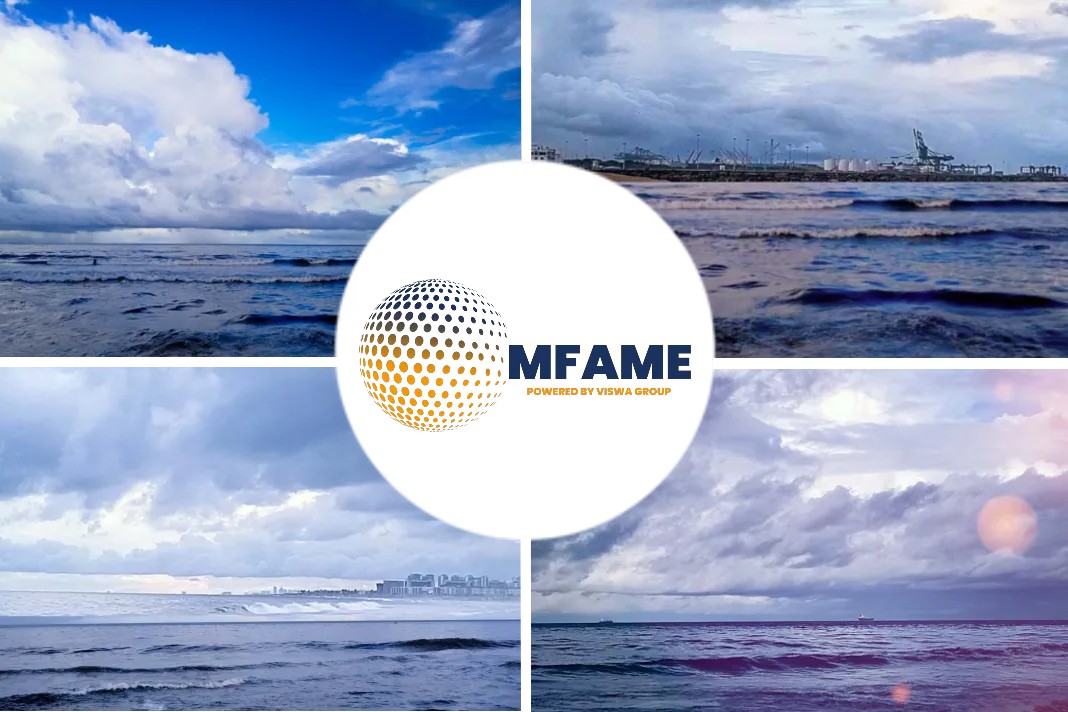Maersk is speeding up its research into the three options to make new fuel available to decarbonise shipping by 2050, reports Lloyd’s List.
Decarbonisation deadline 2030?
Danish carrier sets its focus on alcohol, biomethane and ammonia in an effort to concentrate industry efforts in developing new fuels and infrastructure.
Maersk sees 2030 as the deadline as it wants to have all shipping decarbonised by 2050, which given the working life of a ship would require the first non-fossil fuelled vessels to be developed by the end of the next decade.
“That is not long, especially in a situation where you do not have any of that readily available in the market,” Mr Kornerup said. “We know what some of the options are, but we don’t know which will be most feasible and commercially viable.”
The three potential sources
In an effort to accelerate development, Maersk has published a study in conjunction with Lloyd’s Register that has selected three potential fuel sources:
- alcohol (ethanol/methanol),
- biomethane and
- ammonia — that it wants the industry to focus on developing.
Mr Kornerup said that they have concluded that these three are the ones that are likely to be the first generation of net-zero fuels for shipping after considering
- technology readiness,
- cost projections and
- feasibility on the energy side.
Room for dark horses
Maersk now plans to plough 80% of its research and development resources into developing these fuels, while keeping 20% aside for any “dark horses” that may emerge.
“We feel confident these are the frontrunners,” Mr Kornerup said.
But behind the decision is a wider desire to promote convergence so that the entire energy ecosystem is focusing on the same issues.
What is the real challenge?
“From the studies it is clear that ship design and engines are not the challenge here,” he said. “New types of engine can be produced and ships can be redesigned.”
The real challenge was on the landside, he added.
“It is the energy sector, the integration of the infrastructure to build up the scale and the availability. It is important for us to come out with some communication that can fixate the focus and the resources in the energy sector ecosystem around this.”
Reason for less investment for new fuels
“We are there as partners and will put in all our knowledge of shipbuilding and ship operations,” Mr Kornerup said.
“But it is clear that the bulk of the innovation, scaling and investment needs to take place on land and therefore we need to be vocal about that.”
But shipping is a small part of the global energy picture, and has been content for decades with the burning low-cost residue of the refining process. Because of that, there has been little investment or interest from energy firms in developing new fuels.
“Admittedly, the shipping sector has not called for it, but that is what we are doing now,” Mr Kornerup said.
Importance of communication
“We need to clearly communicate as an industry customer that the demand is there. We don’t see any other way than getting many actors together to lift this together.”
Maersk is also calling for assistance from policy makers, which it believes will be critical to both pushing for changes to fuel sources, and possibly helping in pay for new fuels.
New fuels not cheap!
“The mapping clearly shows that it is unlikely that these fuels will be as cheap as the ones we have today,” Mr Kornerup said.
The question of who bears the cost is not a simple one.
“A simple version is that we pass it on to the customers who will pass it on to the consumer. But another is that it is passed on to society. You either penalise the CO2 use or you subsidise some of this. There is a cost from climate change that the public already bears, which would be reduced.”
LNG sets an example
Maersk hopes that its scale and fleet size will help incentivise fuel providers, and Mr Kornerup points to the progress of LNG.
“We think of LNG as an example that shows that a major change in fuel sourcing can be done. It has different challenges, but what is clear is that it can only be done if a range of actors get together and move in this direction at the same time.”
Did you subscribe to our daily newsletter?
It’s Free! Click here to Subscribe!
Source: Lloyd’s List
















